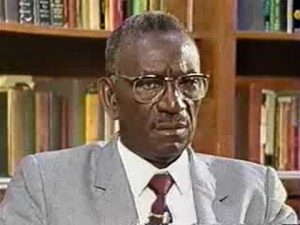First Black Woman Astronaut in Space Mae Jemison
Dr. Mae Carol Jemison was born October 17, 1956, and she is certainly a black radical. Dr. Jemison is a US engineer, physician, and NASA astronaut. She became the first black woman to travel in space when she went into orbit aboard the Space Shuttle Endeavour on September 12, 1992.
A Decatur, Alabama native, Mae Carol Jemison was the youngest child of her parents, Charlie Jemison and Dorothy Green-Jemison. Her dad was a maintenance engineer supervisor for a charity organization, and her mother worked as an elementary school teacher, teaching English and math at the Beethoven School in Chicago.
Early on, Mae was deeply interested in the sciences. In college, Mae studied the physical and social sciences and learned to speak two languages, Russian and Swahili. She earned a degree in chemical engineering, as well as, in African studies.
First Black Woman Astronaut
After college, she studied medicine for four years and became a practicing medical doctor. She is an extremely intelligent and determined individual with radical nature.
Jemison was one of 15 astronauts chosen by NASA out of more than 2,000 applicants to go on her first space expedition. When she was younger, not only was Dr. Martin Luther King an inspiration, but Jemison says that actress and vocalist, Nichelle Nichols, who played Uhura on Star Trek, was also a “guiding light.”
Jemison became the first Black woman astronaut in space in 1992. She was a Mission Specialist on the shuttle, Endeavour, where the mission was a joint event between the United States and Japan. Dr. Mae also had the honor of being America’s 50th shuttle effort. On this flight, Jemison worked with another scientist on two bone-cell experiments. These experiments also included investigating weightlessness and motion sickness.
Astronaut in Space Mae Jemison
In 1993 Jemison founded her own company, the Jemison Group that researches, markets, and develops science and technology for daily life. Jemison also founded the Dorothy Jemison Foundation for Excellence, named in honor of her mother.
Jemison has vocally credited her parents as the best scientists, mainly because they asked the most and best questions. No topics were not allowed the time and space in her upbringing, which really helped Dr. Mae in arts and sciences.
She believes the future of science and arts, especially for black youth, depends heavily on the leadership, guidance, and positive influence parents give to their children. Far too often, parents run their children from science because average parents often do not understand science.
Engage.
The reason we are enjoying the internet and all the technologies we have today is that of the scientific seeds that were planted 30 years ago. We, adults, are responsible for continuing to plant these seeds. The first black woman astronaut in space, Dr. Mae Jemison, a black radical, and educator.
Dr. Mae Jemison Speaking (Click Play)
